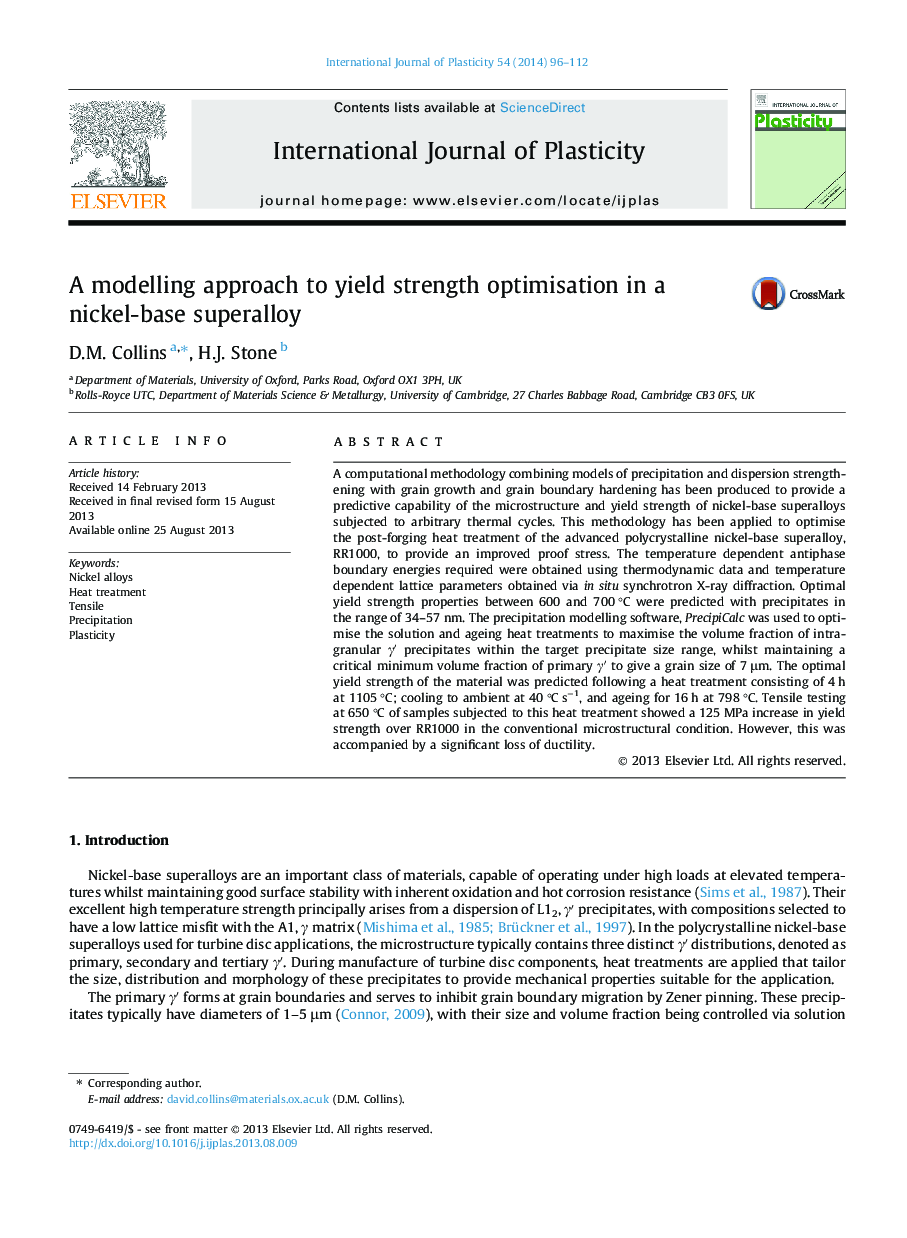| کد مقاله | کد نشریه | سال انتشار | مقاله انگلیسی | نسخه تمام متن |
|---|---|---|---|---|
| 784416 | 1465619 | 2014 | 17 صفحه PDF | دانلود رایگان |
• Yield strength has been optimised in a polycrystalline nickel-base superalloy.
• A dislocation coupling model calculating CRSS enabled precipitate size selection.
• A proposed methodology has enabled the processing heat treatments to be tailored.
• High temperature microstructural evolution has been simulated using several models.
• A large yield strength improvement is found over the standard material condition.
A computational methodology combining models of precipitation and dispersion strengthening with grain growth and grain boundary hardening has been produced to provide a predictive capability of the microstructure and yield strength of nickel-base superalloys subjected to arbitrary thermal cycles. This methodology has been applied to optimise the post-forging heat treatment of the advanced polycrystalline nickel-base superalloy, RR1000, to provide an improved proof stress. The temperature dependent antiphase boundary energies required were obtained using thermodynamic data and temperature dependent lattice parameters obtained via in situ synchrotron X-ray diffraction. Optimal yield strength properties between 600 and 700 °C were predicted with precipitates in the range of 34–57 nm. The precipitation modelling software, PrecipiCalc was used to optimise the solution and ageing heat treatments to maximise the volume fraction of intragranular γ′γ′ precipitates within the target precipitate size range, whilst maintaining a critical minimum volume fraction of primary γ′γ′ to give a grain size of 7 μm. The optimal yield strength of the material was predicted following a heat treatment consisting of 4 h at 1105 °C; cooling to ambient at 40 °C s−1, and ageing for 16 h at 798 °C. Tensile testing at 650 °C of samples subjected to this heat treatment showed a 125 MPa increase in yield strength over RR1000 in the conventional microstructural condition. However, this was accompanied by a significant loss of ductility.
Journal: International Journal of Plasticity - Volume 54, March 2014, Pages 96–112
